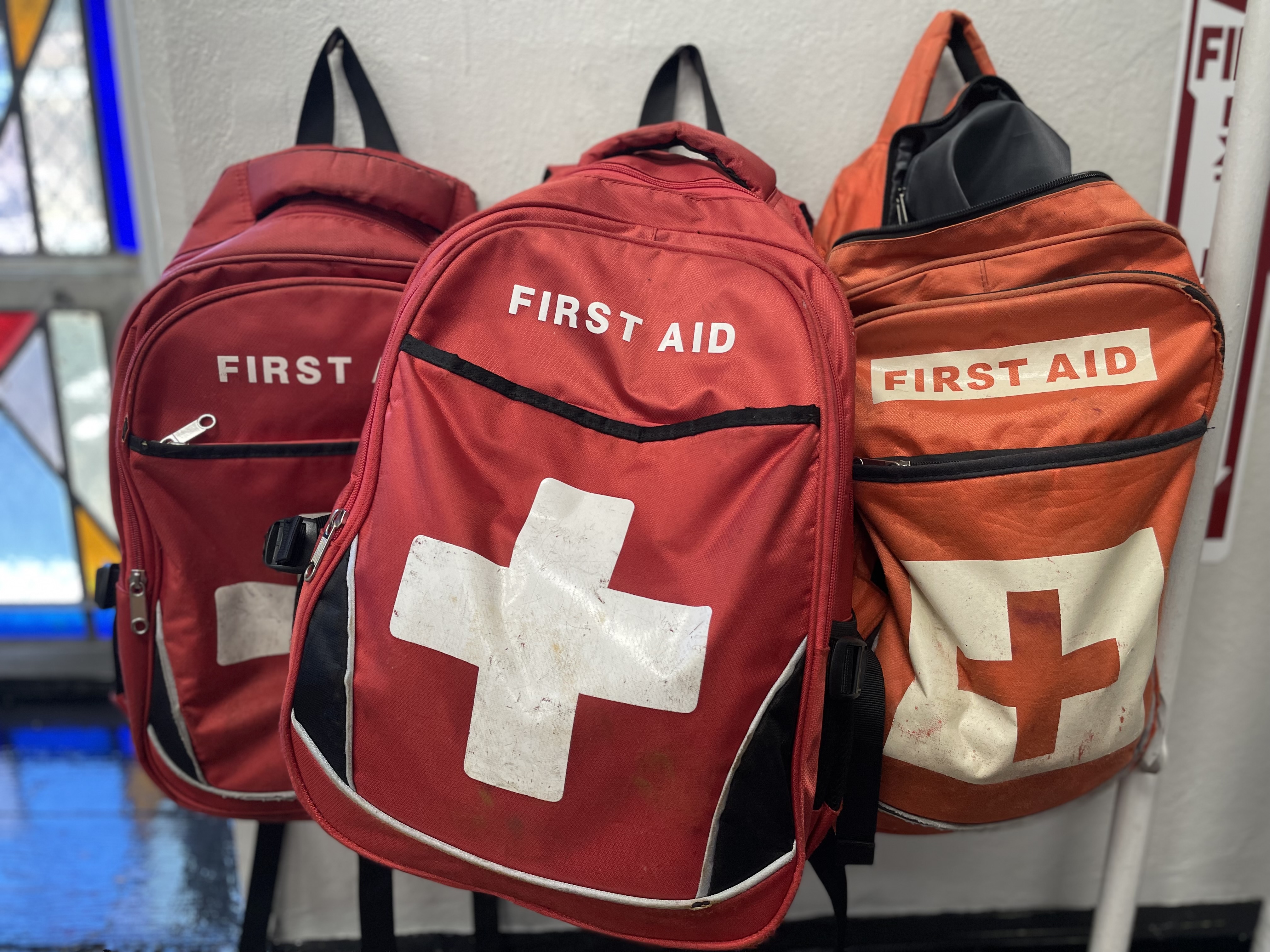
For nearly a decade, Prevention Point Philadelphia (PPP) has operated a team dedicated to saving lives on the ground, and training thousands of others to do the same: the Overdose Prevention (ODP) Team. Shawn Westfahl, ODP Coordinator, has worked at PPP for eight years and leads the team in its outreach and education efforts, as well as distribution of naloxone, test strips, and other overdose prevention tools. In FY2024-25, the team distributed 113,571 doses of Narcan—a brand name of the opioid overdose-reversing medication naloxone—on the streets and to community partners in Philadelphia. This marked a 13% increase in distribution from the previous year.
“One big aspect of what we do is work with our community partners, giving them the naloxone they need to distribute for free in their own communities,” Shawn emphasizes.
ODP collaborates with a wide range of groups, including HIV prevention organizations, treatment facilities, faith-based organizations, healthcare providers, and local universities. In addition to Shawn, the team includes Amira Cason, Cristina Gonzalez, and Carlos Del Valle, who bring their deep experience and expertise to the people in Philadelphia who need it most—including Black and Brown communities. Even as the total number of fatal overdoses has decreased both locally and nationally, death rates for Black and Latino Philadelphians have continued to soar.
“It really is about the lack of resources,” says Cristina, who has had close loved ones struggle with substance use disorder in Kensington. “If people don’t have the tools and education, how are they supposed to know where to turn or what to ask for?”

While Narcan is an essential tool in preventing fatal overdoses and saving lives, Shawn emphasizes that it’s also critical to know the basics of emergency response, which the ODP team focuses on in their trainings.
“Recognizing when a person is in cardiac arrest is crucial,” Shawn says. “And as in any emergency, looking out for and managing threats to life, not only for suspected opioid overdose, but for environmental threats as well.”
PPP also goes a step further and ensures that all staff are trained in basic life support.
“Not only are we trained to respond to emergencies, but we stay current on our certification. We also stay equipped, having the necessary tools on us when an emergency occurs,” Shawn says.

Additionally, PPP’s ODP team brings their daily experiences as emergency responders to their work on the streets and in community education.
“One thing that sets us apart from other overdose reversal trainings is we try to incorporate things that we've learned and seen here in Kensington and how that's evolved throughout the years. For example, we have had to update our trainings as the drug supply has changed,” Shawn explains. The rise of large-animal tranquilizers such as xylazine and medetomidine has required ODP to closely monitor overdose symptoms and track the street drug supply for new contaminants.
The importance of getting trained and trusting that training in an emergency cannot be overstated. The ODP team is practiced in communicating and problem-solving as a group when they respond to emergencies.
“I personally believe that every major event in life is a learning opportunity. And in the case of responding to emergencies on the street, if I'm able and humbled to save a life, I make it a teaching moment for bystanders around me and explain what I'm doing and why,” Shawn states. “Hopefully, if they're ever in that position again, they can respond effectively.”
ODP is always looking for new partners who want to distribute naloxone and test strips in their own communities and be trained in overdose reversal. All supplies and trainings from PPP are FREE. Interested organizations can reach out to ODP on our website.